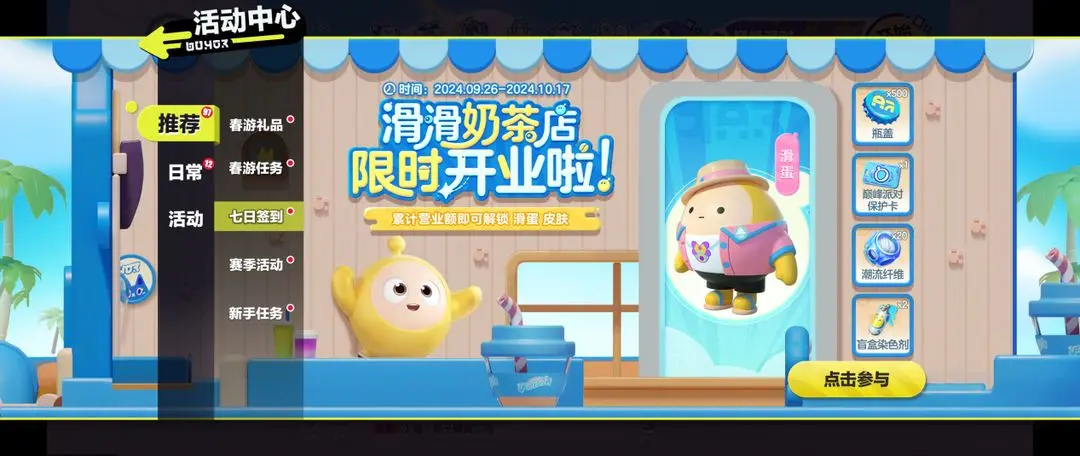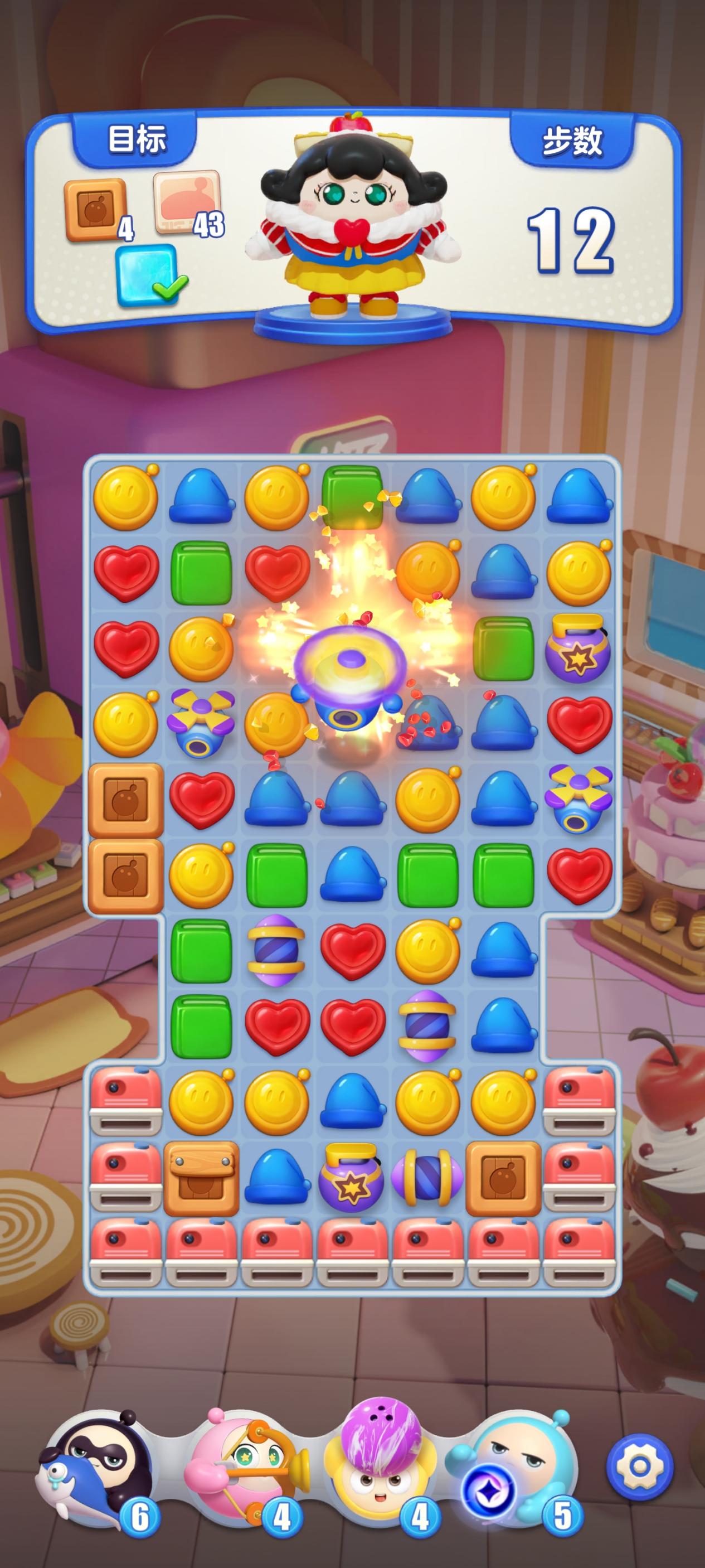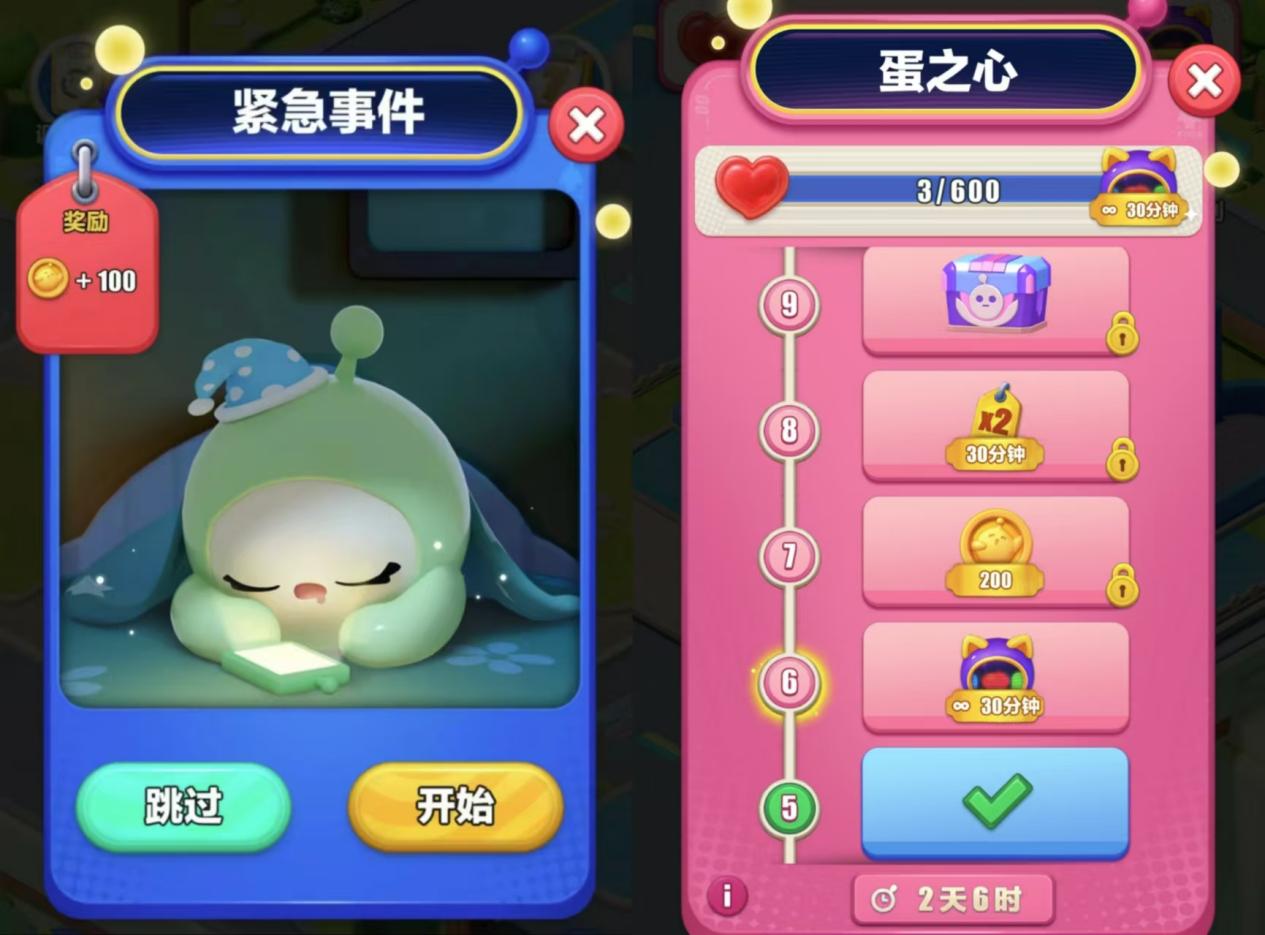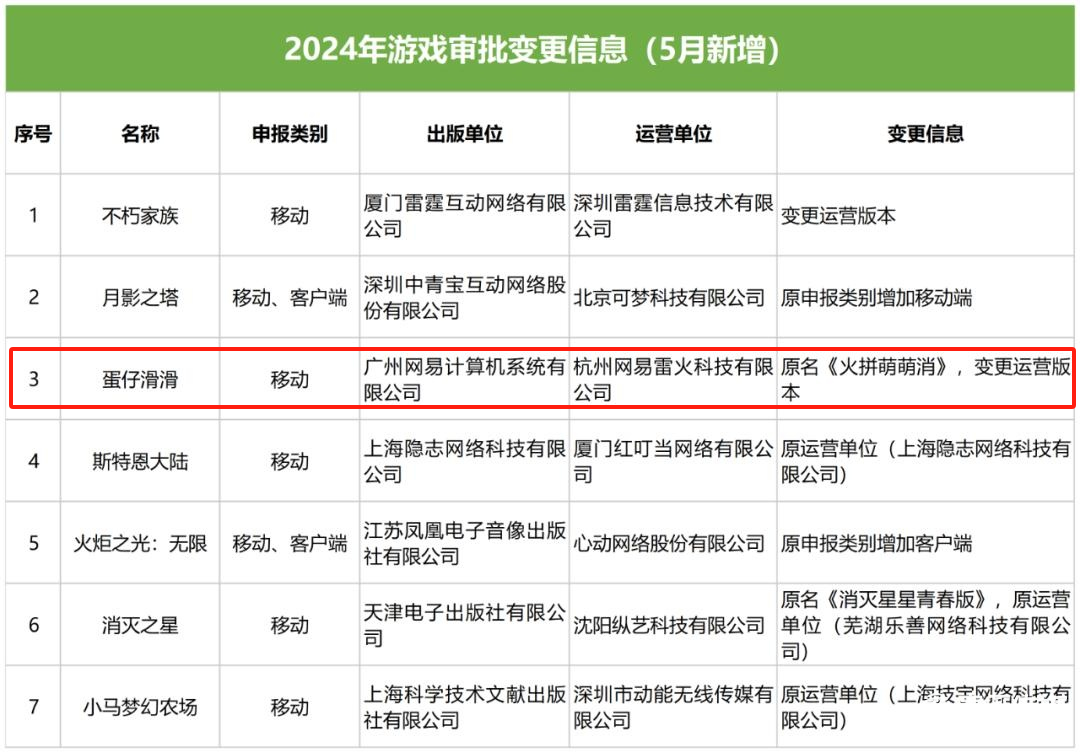"Eggman Slide" = Eggman + Match-3, can it still captivate kids?
![]() 10/21 2024
10/21 2024
![]() 611
611
"Eggman Slide" steps out of NetEase Games' "comfort zone"

After just 4 months of testing, NetEase Games hastily launched its first new game based on the Eggman IP.
On October 15, NetEase Games quietly released "Eggman Slide." As it is a common Match-3 game, neither the market nor players showed much enthusiasm, and on the first day of open beta, the game only reached TOP 50 on the iOS Free Games Chart.
Although NetEase didn't invest heavily in paid marketing, it did leverage its existing "Eggman Party" game for cross-promotion.

On gaming platforms like TapTap, Bilibili, and HYOYO, "Eggman Slide" received ratings above 8, with general reviews praising its fun but somewhat mediocre gameplay. For this classic game genre, not making mistakes is its biggest strength.
As "Eggman Party" celebrates its second anniversary, NetEase Games has launched another casual game. Is this the beginning of the "Eggman Universe," or just a tentative exploration? We'll see in the game.
01 Quick and light, can "Eggman Slide" succeed with a new skin?
The core gameplay of "Eggman Slide" is similar to "Happy Match," a Match-3 game where players earn caps by completing elimination levels and use them to unlock new buildings on Eggman Island. However, there's no in-depth cultivation gameplay after unlocking; just some Eggman characters performing on the map, indicating the game isn't pursuing a Match-3 + building cultivation route.
Players activate items by eliminating three or more blocks. Each level's goal is to collect terrain elements by eliminating blocks. Adjacent items can be combined, but the focus isn't on eliminating blocks; due to limited moves per level, players must use items strategically to complete tasks within the limit, enriching the game's strategy.

Special items like TVs, bombs, and missiles are created by eliminating blocks in specific patterns. Items can form combos; for example, combining a TV with a bomb turns the most blocks of the same color into bombs, and combining a bomb with a missile allows the bomb to fly to unfinished targets.
Players can equip up to three items before each level, and use the four bottom item slots during gameplay to reduce difficulty. However, these are consumables; after using up the free ones, players must buy more, making in-app purchases the game's primary monetization strategy.
The game also includes random events, highlighting Eggman IP elements and immersive character interactions.
One is an "emergency event" where players must pass a level within a minute to save Eggmen trapped in nightmares. The other is a "limited-time event" to earn game resources.

Incorporating storytelling enhances Eggman characters' presence. Besides the five main characters, many popular Eggman IP characters appear as NPCs: Naughty Dumpling wants a bubble tea shop, Apple Pie Snowflake dreams of a bakery, Panda Sui Sui aspires to open a hot spring resort, etc. Players unlock these shops by passing levels and earning caps, helping the characters fulfill their dreams.
Designing numerical values in Match-3 games is challenging. Factors like required scores, move limits, and elimination targets can't be determined by simple quantitative analysis. It requires building suitable numerical models and extensive testing to ensure a challenging yet enjoyable game. How did "Eggman Slide" achieve this quickly?
In fact, "Eggman Slide" is a reskinned version of NetEase's "Fire Fight Cute Elimination" game, which underwent a collaboration with Eggman during its beta test in July 2023. The game's operating version was updated in the game approval change list in May this year.

By quickly "reproducing" a mature product, NetEase solved the license application issue and avoided project resource waste, adding another casual game to the Eggman franchise. This strategic move is worth learning from the industry.
02 IP-derived games: Tencent and NetEase tread carefully
NetEase began building an original game IP matrix with the success of "Onmyoji." It subsequently developed "Onmyoji Arena," "Onmyoji Arena: Okami Den" ( Monster House in Chinese), and "Onmyoji: The Card Game" ( Baiwen brand in Chinese). While they performed decently, none stood out independently, especially as "Onmyoji"'s influence waned by the time "Okami Den" and "The Card Game" launched.
Recognizing this, NetEase halted further development of three planned "Onmyoji" IP games: the open-world "Project SSR," female-oriented "Idol Studio," and werewolf-themed "Okami Class" ( Monster Class in Chinese).
The three existing "Onmyoji" IP-derived games share similar characteristics.

They maintain "Onmyoji"'s high graphical standards and introduce innovative gameplay. Leveraging "Onmyoji"'s strong IP appeal, these games have cultivated a loyal player base. Importantly, the development team enriches popular characters' backstories and narratives, maintaining game heat and player engagement through events and competitions.
Launching multiple products around a successful IP is common in the entertainment industry, but subpar games can damage the IP. Failed derivative game examples abound, like Chinese mobile game developer CMGE's numerous "Xian Jian Qixia Zhuan" ( Legend of Sword and Fairy in Chinese) IP games, none of which became hits, fostering a stereotype of low-quality "Xian Jian" mobile games.
Tencent excels at IP game development, but its biggest hits, "Game for Peace" and "Teamfight Tactics: League of Legends," are essentially mobile ports of PC games.
Its purely original "King of Glory" IP includes "King's Chess," "Awakening of the Void," and "King of Glory: World." However, these projects have seen delays and changes, indicating Tencent's struggles in development.
Thus, developing games based on popular IPs requires patience and consideration.
According to Gama Data's "2023 China Mobile Game Industry Report," the Match-3 genre has around 300 million users, 70% of whom are female aged 25-39, likely recent college graduates or middle-aged married women, distinct from Eggman's audience.

Image credit: Gama Data
Maintaining heat through derivatives, as with "Onmyoji," may seem outdated for NetEase to create a Match-3 game.
However, Eggman's popularity among minors, while attractive to kids, has caused backlash from some parents. In this context, "Eggman Slide"s casual, educational gameplay and cute Eggman characters could deepen parents' recognition and support for the IP, having a positive impact.
Establishing a foothold in a similar genre before gradually expanding influence and brand awareness may be NetEase's lesson from "Onmyoji" IP development. Whether "Eggman Party" can become another NetEase treasure remains to be seen.
Edited by Ding Li





